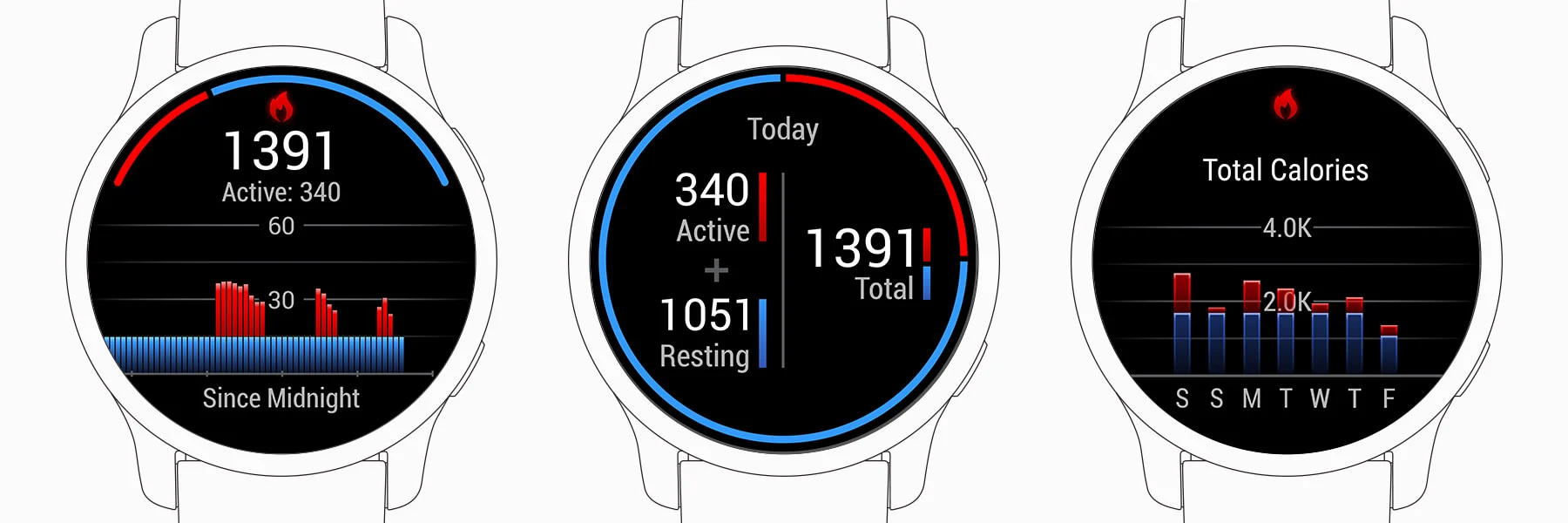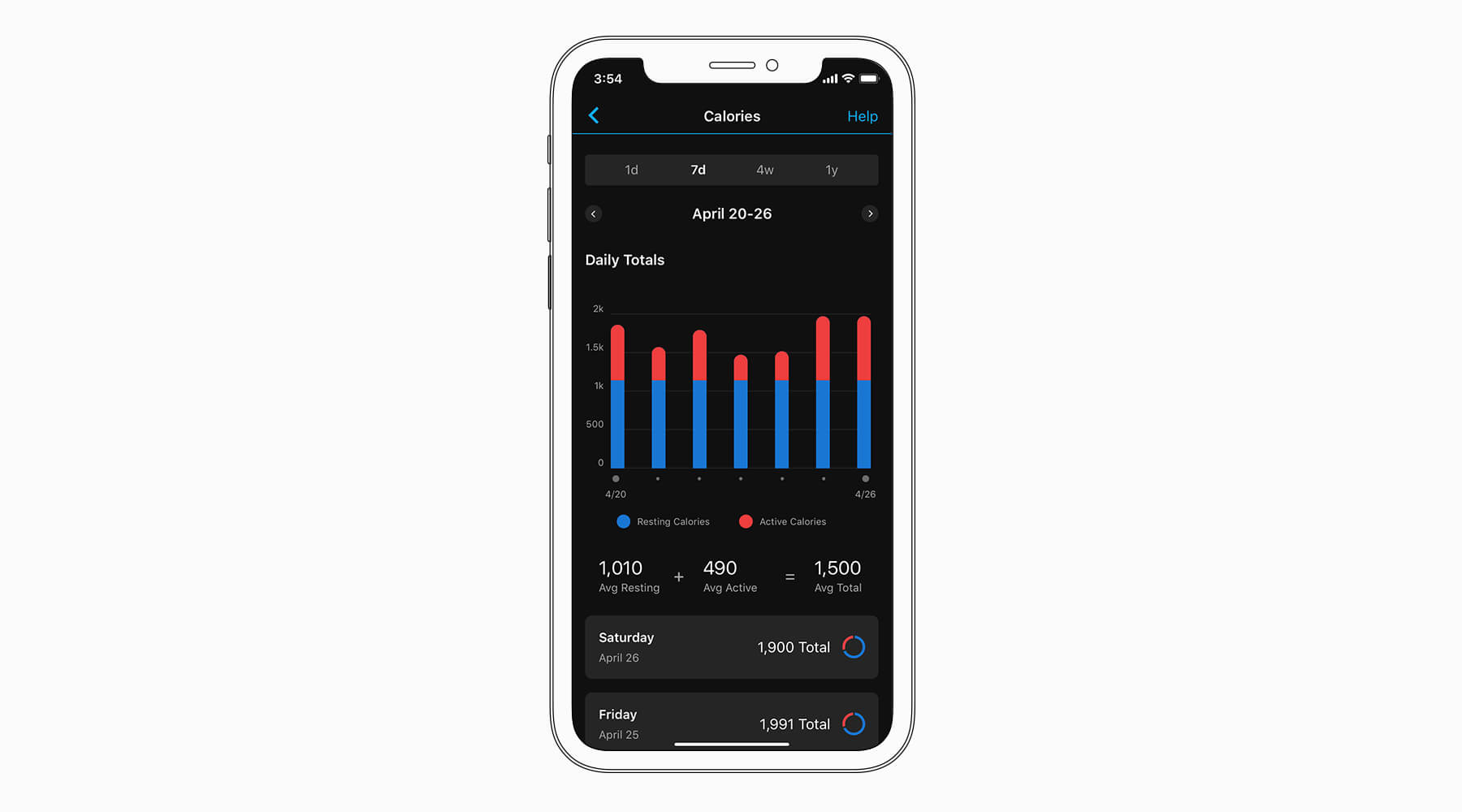
The desire to manage weight and keep track of calories are two of the most common reasons people engage with wearables and health tracking tools. Obesity is a major, independent risk factor for heart disease. The good news is that losing excess weight can make a huge difference in helping you sleep better, reducing muscle and joint pains, and reducing the chances of developing Type 2 diabetes.
Metabolism describes the chemical process of transforming energy from what you eat and drink into the molecular fuel your cells need to do their jobs. How much of the energy contained in various proteins, fats and carbohydrates you convert depends on the physiological demands of your life.
You are always burning calories. Everything you do requires some energy; even sleeping or sitting on the couch watching TV burns calories. Naturally, your body’s demand for energy increases significantly during physical activity. Metabolic activity increases along with the intensity of your efforts. Powered by Firstbeat Analytics, your Garmin device can help you understand how many calories you burn throughout the day.
An average person might burn less than 100 calories in an hour of watching TV. If that person instead spends the hour running hard, they might burn closer to 1,000 calories. Experts recognise the difference between calories burned to keep you alive throughout the day and calories burned during physical activity. This distinction is reflected in the information you see on your Garmin watch or in the Garmin Connect™ app.
When you see the term “active calories,” this refers to the calories you burned during physical activity. The other category, “resting calories,” refers to calories burned during periods of inactivity. These are the calories burned that keep your body functioning, such as breathing, circulating blood, maintaining body temperature, operating your nervous system and sleeping. Your resting calories burned is also referred to as your basal metabolic rate.
Understanding the calories you consume each day when you eat and drink can ensure that you are eating in a way that supports your active lifestyle needs.
